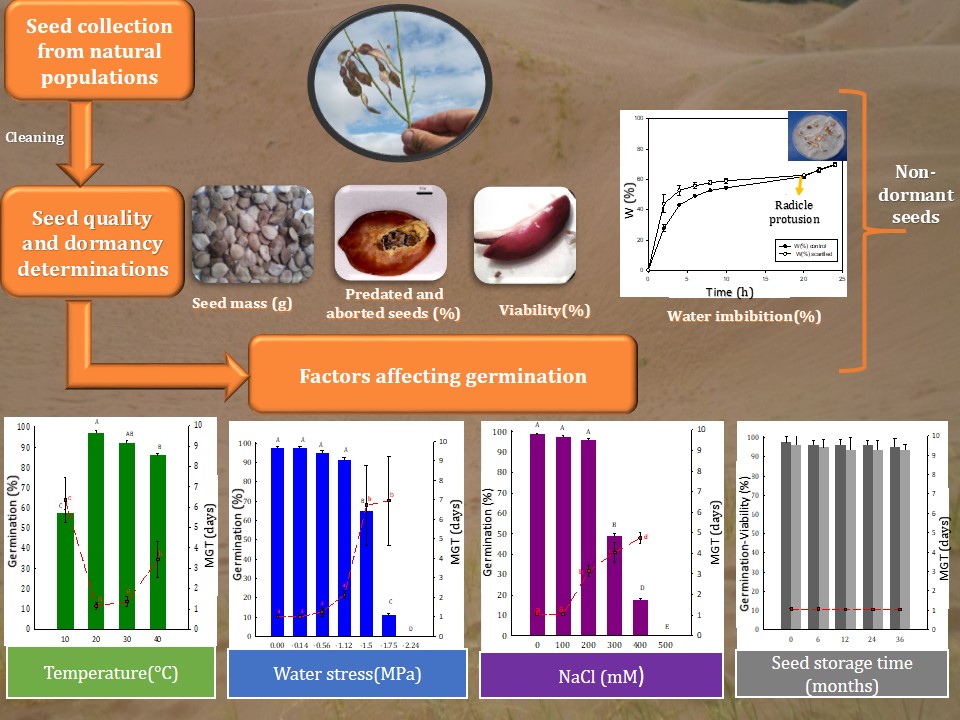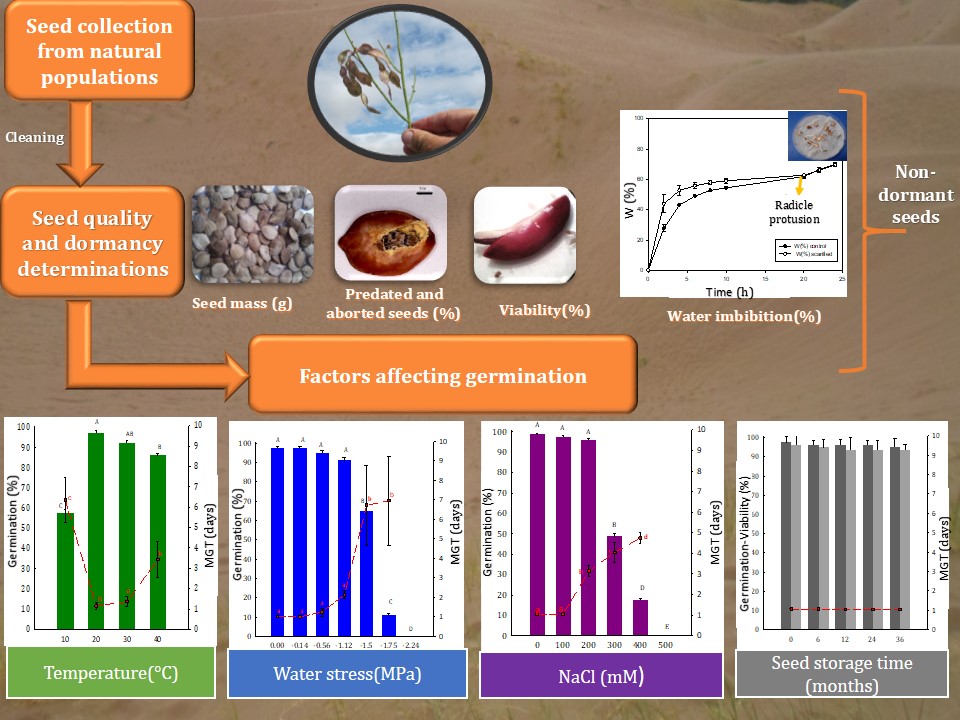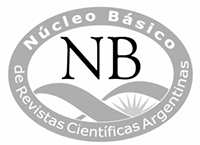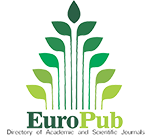Environmental factors affecting germination of Mimosa ephedroides (Fabaceae), an endemic shrub from Monte Desert, Argentina
DOI:
https://doi.org/10.48162/rev.39.014Keywords:
seed dormancy, viability, temperature, water stress, salinity, storage, restorationAbstract
Mimosa ephedroides is an endemic shrub from western Argentina. The knowledge of the germination response of this species to different environmental factors contribute to its efficient use in ecological restoration projects. This study aimed to examine aspects of seed quality, seed dormancy, and the effect of temperature, water and saline stress on the germination of this species. Also, the effect of seed storage time on the viability and the percentage of germinated seeds were evaluated. Experiments were carried out in controlled growth chambers. Germination percentage and mean germination time were calculated. It was found that this species has non-dormant seeds. Concerning abiotic factors, the optimum temperature for germination ranged from 20 to 30 ºC, it presented high germination percentages even at moderate and severe water stress (-1.12 MPa), and the germination percentages decreased with increasing salinity levels from 300 mM NaCl. In short periods (up to 36 months), seed storage at room temperature (18ºC) was adequate, not affecting the viability and the germination power of the seeds. These results constitute a contribution to the knowledge of the autecological aspects of this endemic species, support its incorporation for restoration projects, and aid to an efficient use of native seeds for direct seeding or seedling production.
Highlights
- Mimosa ephedroides seeds are non- dormant, show high viability and rapid germination (>24 h).
- This shrub is able to germinate in a wide range of temperatures and under moderate and severe water stress.
- High salinity levels (<300 Mm NaCl) negatively affected seed germination.
- Seed storage for short periods (<5 years) at room temperature (18ºC) did not affect seed viability and germination.
Downloads

Downloads
Published
How to Cite
Issue
Section
License
Copyright (c) 2021 Revista de la Facultad de Ciencias Agrarias UNCuyo

This work is licensed under a Creative Commons Attribution-NonCommercial-ShareAlike 3.0 Unported License.
Aquellos autores/as que tengan publicaciones con esta revista, aceptan las Políticas Editoriales.












.jpg)




